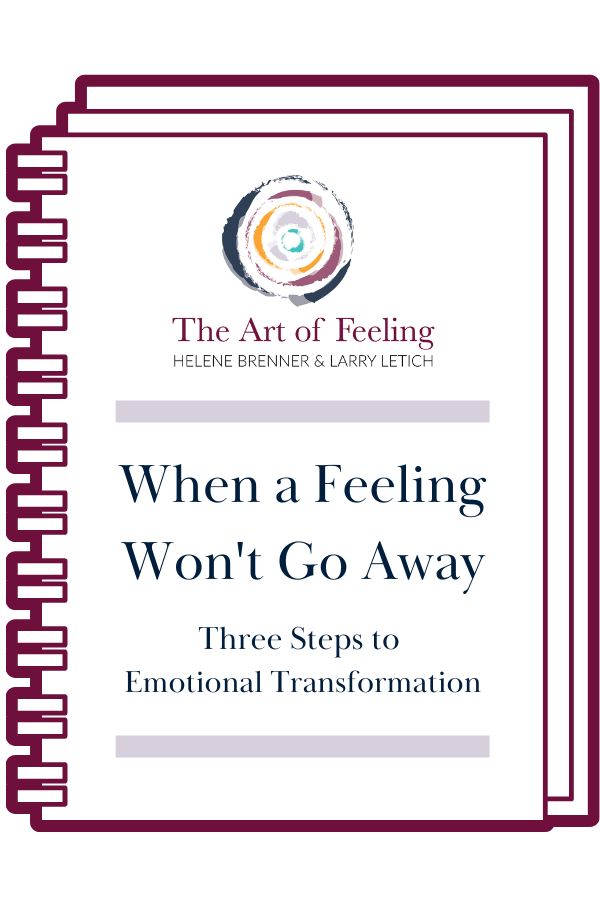This is Part Two in a series of articles on how to have difficult conversations. To read Part One, click here.
Are you feeling the need to have a talk with your partner that you know isn’t going to be easy?
It could be about something they’ve done, or continue to do (or for that matter, don’t do), that’s upsetting you so much you can’t overlook it. It could be about a problem in your life together that they either see totally differently or prefer not to face. Or it could be that you need to share something that they’re not going to be happy about.
So you’re nervous about bringing it up. You’re expecting conflict, raised voices, hurt feelings. You’re afraid it will just “go nowhere,” or that “nothing will change,” or you “won’t get through,” leaving your relationship in a worse place than where you are. You might think, “maybe I should leave well enough alone?” But you know in your heart of hearts that you don’t want to keep quiet and stick with the status quo. In order for you to be authentic – and for your life together as a couple or a family to get better and grow – you have to talk this out.
Congratulations for being brave!
Before you say, “Gee, thanks,” we’ve got some help for you. But let’s zoom out first and look at what makes conversations like this so, well, difficult, before we get down to the brass tacks.
We Haven’t Learned How to “Do” Emotional Conflict
The truth is that very few of us ever learned how to deal with emotional conflict in a healthy way. Maybe you grew up in a family where the only way conflict was dealt with was with ugly fights that either nobody won, or one parent won by making someone else—your other parent, your siblings, or you—lose. Or maybe you grew up in a family where conflict was avoided completely, and major problems didn’t get faced for decades. Maybe you see your parents even now avoiding those very same issues!
But even if your parents had a good relationship, you still may never have learned how to deal with emotional conflicts. You may have only seen their conflicts leak out in tense moments or heated arguments, while the actual process of working out their conflicts was done in private.
Difficult Issues, Big Feelings
Whether it’s about money, sex, “the kids,” household management, upsetting behaviors, whether to move or not, or something you’re hiding that you can’t live with anymore, difficult conversations are at their heart emotional. If you’re initiating a difficult conversation, your primary feelings going into it are: “Do I matter to you? Do you care about how I feel and what I need? Are you willing to change, knowing that I’m not happy with the way things are? Are you really on my team? Will you come through for me on the tough stuff? Do I have a voice in our relationship?”
For your partner, the primary feelings will be: “Do you accept me? Do I have to change for you? Maybe I can’t make the change you want, and you won’t love me anymore.” It can also be: “Do I have to agree with you even if I don’t? Do I have to give in to you—and will that be enough? Are you on my team? Do I have a voice?”
Power
Difficult conversations also trigger feelings about something practically nobody likes to talk about: The issue of power in our relationships. It’s true that there are some relationships with serious, and seriously harmful, imbalances of power. But most people in long-term relationships underestimate how much power and influence they have over their partners, and overestimate how powerful their partners feel. You’d be amazed at how often both partners in a couple will say, “My partner always gets their way.”
All of us (and we really mean all of us) deep down are at least a little afraid sometimes of being overpowered by our partner. It’s because our partners are so important to us. It could also be because the very first people who mattered to us this much—our parents—seemed God-like in their power when we were small and vulnerable.
In difficult conversations, these feelings come up as: “Are you trying to put one over on me and take advantage of me? Am I going to have to take it or leave it?” For the other partner, it could be, “Are you trying to push me around, control me, belittle me?”
These are why difficult conversations are never resolved by presenting the best facts and arguments. Nor are they resolved by simply making your partner realize how upset you feel so that if they truly loved you they would change. No matter how justified your feelings or how deeply you feel ignored, your partner has to feel understood as well or nothing will change.
Now that we’ve covered how to set the stage for a difficult conversation, and what makes it so hard to have one, the next blog in this series will cover how to make the actual conversation as successful as it can be.


 We’re Helene Brenner and Larry Letich. Helene is a licensed psychologist in private practice for more than 30 years. Larry is an individual and couples therapist. Besides being therapists, we’re co-authors and partners in life and love for more than four decades.
We’re Helene Brenner and Larry Letich. Helene is a licensed psychologist in private practice for more than 30 years. Larry is an individual and couples therapist. Besides being therapists, we’re co-authors and partners in life and love for more than four decades. 

0 Comments